Discover the Women of the Hall
These are the Inductees of the National Women’s Hall of Fame. Select any of the women to discover their stories and learn how they have influenced other women and this country.
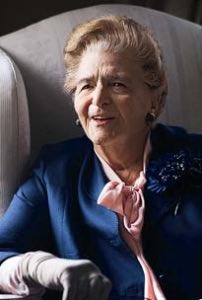 Catherine Filene Shouse
Arts, Philanthropy
1896
Massachusetts
2007
Catherine Filene Shouse
Arts, Philanthropy
1896
Massachusetts
2007

Catherine Filene Shouse
Known for her visionary work in education, arts, politics and women’s affairs, Catherine Filene Shouse was the first woman to receive a Masters Degree in Education from Harvard University and the first woman appointed to the Democratic National Committee in 1919. Ten years later, she launched the Institute for Women’s Professional Relations. An ardent supporter of the arts and arts education, Catherine Filene Shouse founded and was the major benefactor of the Wolf Trap National Park for the Performing Arts in Vienna, Virginia – the first and only national park dedicated to the performing arts. She was awarded the Presidential Medal of Freedom by President Gerald R. Ford in 1977.
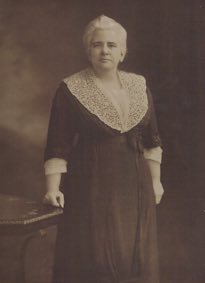 Anna Howard Shaw
Humanities
1847
England
2000
Anna Howard Shaw
Humanities
1847
England
2000

Anna Howard Shaw
A leader in the women’s suffrage movement, Shaw was a master orator for social justice, and the first woman to be ordained by the Protestant Methodist Church. She was the first living American woman to be awarded the U.S. Distinguished Service Medal.
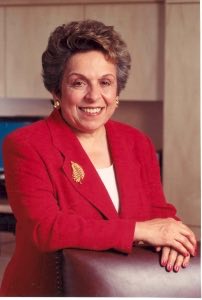 Donna E. Shalala
Education, Government
1941
Ohio
2011
Donna E. Shalala
Education, Government
1941
Ohio
2011

Donna E. Shalala
A groundbreaking educator and politician, Dr. Donna Shalala has more than thirty years of experience as an accomplished scholar, teacher and administrator. Dr. Shalala is recognized as the longest serving United States Secretary of Health and Human Services (1993-2001) and is the current President of the University of Miami. From 1980-1987, Dr. Shalala served as the president of Hunter College, and from 1987-1993, she was the chancellor of the University of Wisconsin-Madison. Dr. Shalala is the recipient of more than three dozen honorary degrees and was awarded the Presidential Medal of Freedom in 2008.
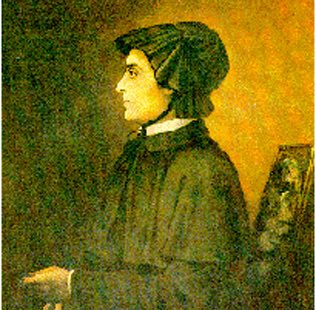 Elizabeth Bayley Seton
Humanities
1774
1979
Elizabeth Bayley Seton
Humanities
1774
1979

Elizabeth Bayley Seton
The first native-born American woman to be canonized a saint by the Roman Catholic Church. After raising a family, “Mother Seton” became a Sister of Charity and worked as an educator and leader of the order. She was known for her extraordinary virtue and kindness, and incidents of miraculous healing are attributed to her.
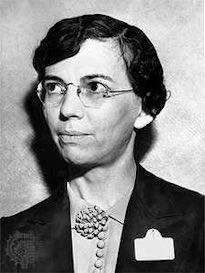 Florence B. Seibert
Science
1897
1990
Florence B. Seibert
Science
1897
1990

Florence B. Seibert
Scientist who made it possible to test for tuberculosis and who pioneered safe intravenous therapy. Siebert also devoted many years to cancer research.
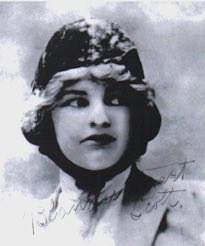 Blanche Stuart Scott
Science
1889
New York
2005
Blanche Stuart Scott
Science
1889
New York
2005

Blanche Stuart Scott
Born in Rochester, New York, Scott was a pioneering aviatrix, becoming the first American woman to take a solo hop into the air, although her flight is not regarded as official. In 1910, she became one of the first woman to drive an automobile coast to coast in her car – the ‚”Lady Overland”. Scott was also the first and only woman to take flying lessons from Glenn Curtiss, later flying with the Curtiss Exhibition Team and earning the nickname ‚”Tomboy of the Air”.
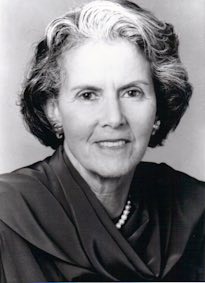 Felice N. Schwartz
Business
1925
New York
1998
Felice N. Schwartz
Business
1925
New York
1998

Felice N. Schwartz
Founder in 1962 of Catalyst, the premier organization working with corporations to foster women’s leadership. She published studies (Women in Corporate Leadership in 1990 and Women in Engineering in 1992) illustrating the barriers to women’s workplace progress and then provided samples of model corporate practices to help women advance. Her work has had a lasting impact on the composition of American corporate leadership.
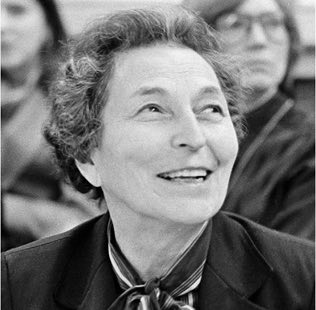 Anna Jacobson Schwartz
Business
1915
New York
2013
Anna Jacobson Schwartz
Business
1915
New York
2013

Anna Jacobson Schwartz
Perhaps the most widely acclaimed female research economist of the twentieth century, Anna Jacobson Schwartz has been described as “one of the world’s greatest monetary scholars.” In 1941, after a five year career with Columbia University’s Social Science Research Council, Schwartz began her more than seventy year tenure working for the National Bureau of Economic Research. During her time at the National Bureau, Schwartz met and began working with Milton Friedman and together, the two coauthored A Monetary History of the United States, 1867 – 1960. Described by Federal Reserve chairman, Ben Bernanke, as “the leading and most persuasive explanation of the worst economic disaster in American history,” the text is one of the most widely cited in economics. Schwartz was also considered a leading financial historian and expert on monetary statistics in the United States and Britain.
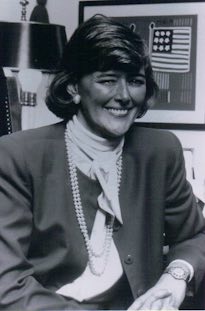 Patricia Schroeder
Government
1940
1995
Patricia Schroeder
Government
1940
1995

Patricia Schroeder
Served as the senior woman in Congress, first elected in 1972 from Colorado. Schroeder worked to establish a national pro-family policy, promoting issues such as parental leave, child care and family planning.
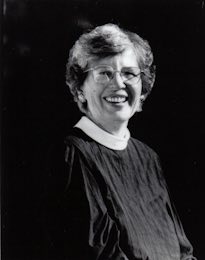 Betty Bone Schiess
Humanities
1923
Ohio
1994
Betty Bone Schiess
Humanities
1923
Ohio
1994

Betty Bone Schiess
Religious leader. Schiess led the successful effort in 1974 to have women ordained as priests in the Episcopal Church in America, elevating the position of women in the Episcopal Church at all levels.
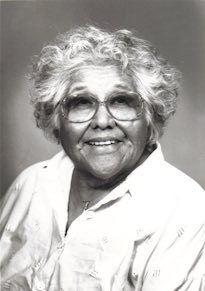 Katherine Siva Saubel
Arts, Education, Humanities
1920
California
1993
Katherine Siva Saubel
Arts, Education, Humanities
1920
California
1993

Katherine Siva Saubel
Founder of the Malki Museum at the Morongo Reservation in California. Born on a reservation in great poverty, Saubel became determined to preserve her tribe’s culture and language, despite overwhelming odds. A learned ethno anthropologist, Saubel was a founder of this first museum run by Native Americans.
 Margaret Sanger
Humanities
1879
1981
Margaret Sanger
Humanities
1879
1981

Margaret Sanger
Nurse and social reformer. After seeing many poor women in New York City damaged and dying from attempts to end unwanted pregnancies, she fought for reform. Sanger underwent arrests and imprisonment for distributing information on birth control and contraception.
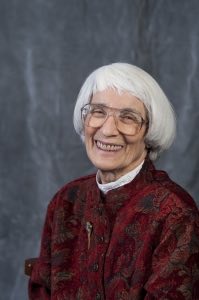 Bernice Resnick Sandler
Education, Humanities
1928
New York
2013
Bernice Resnick Sandler
Education, Humanities
1928
New York
2013

Bernice Resnick Sandler
For more than forty years, Bernice Resnick Sandler has been a tireless advocate of educational equity for women and girls. In 1970, Sandler filed the first charges of sex discrimination against 250 educational institutions. It was this strategy that led to the first federal investigations of campus sex discrimination at a time when no laws existed to prohibit discrimination based on sex in education. Subsequently, Sandler was instrumental in the development, passage and implementation of Title IX, the legislation that prohibits discrimination on the basis of sex in any federally funded education program or activity. An expert in strategies and policies to prevent and respond to sex discrimination in higher education, Sandler has given more than 2,500 presentations. She currently serves as a Senior Scholar in Residence at the Women’s Research and Education Institute in Washington, DC.
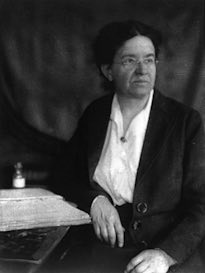 Florence Sabin
Science
1871
Colorado
1973
Florence Sabin
Science
1871
Colorado
1973

Florence Sabin
First woman graduate of the Johns Hopkins School of Medicine and the first woman to teach there. A talented anatomist and researcher, Sabin performed pioneering work in embryology, the lymphatic system and tuberculosis.
